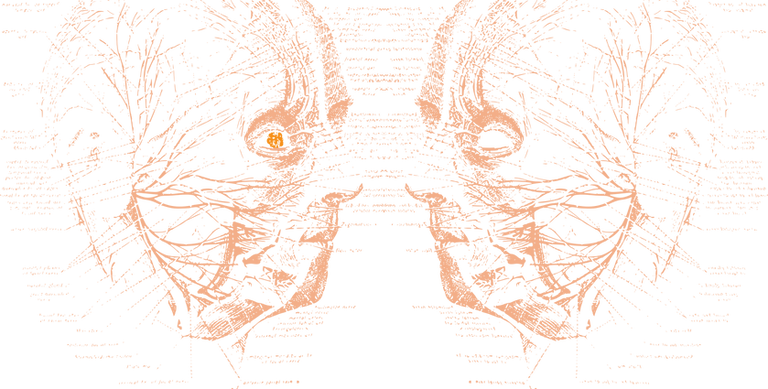Charting the path to a biologically informed system of mental illnesses
Willa Goodfellow ~ Mar '20
A moonshot exploring the human brain at single-cell resolution
Andrew Neff ~ Mar '20
Written by Andrew Neff
March 2019
Who's Happier:
people who have what they want,
or want what they have?

Based on Research by Jeff T. Larson of Texas Tech and Amie Mckibban of Wichita State University
In 1962, at the inauguration of the 36th U.S.A. president, Rabbi Hyman Judah Schachtel was invited to offer our great nation a prayer. A decade earlier, the good rabbi began earning notoriety with the publication of his book, The Real Enjoyment of Living. In his debut work, he outlines… I mean… nevermind... this is the instagram generation, Rabbi Schachtel exists in the modern conscious because of the following 12 words: "Happiness is not having what you want, but wanting what you have,". Was he right? Is happiness truly wanting what you have, or did he have it backwards, or not in any direction at all?
We seem to all have a position on this - should we pursue the out-of-our-league partner of our dreams, or welcome the virtues of the realistic partners already in our lives? Start a business in something we’re passionate about, or accept our career as a rental car desk agent? And how much money, and how many instagram followers do we really need? (more plz, @MindBrain_Illustrated)
Thinking that happiness is having what you want tends to conjure up some of the less likeable U.S.A stereotypes, capitalistic-greed and shallow-materialism. But expanding the definition just a tad, and considering things like relationships, life-skills, work-accomplishments, following your dreams can be glorified. Want to become a better partner by developing your listening skills? Save the planet with your new beekeeping hobby? Stave off obesity through regular exercise? In certain domains, it’s easy to admire someone who’s courageous, energetic, outcome-maximizing.
At the other end, considering the more ascetic approach of happiness is wanting what you have, there’s plenty of reverence for your simplicity, your spiritual wisdom, your enlightened pursuit of not-want. And Instagram agrees, #HappinessIsSimple #HappinessComesFromWithin #HappinessIsFree. But, again, broadly defined, most people still want something, even if it’s the capacity to sit motionless and still-minded for hours, or a few close friendships. At the same time, not everyone believes this type of ascetic achievement is realistic, we might just be slash are inundated with superficially calm gurus; resigned, complacent, and secretly dissatisfied.
Whatever society considers you, the question at hand is happiness, and which camp has a better claim. Should we accept our potentially unalterable desires, and dedicate ourselves to their satisfaction? Or should we accept the things we have, and try to cultivate gratitude? And, might we find some science to back up the answer?
Want more Brain Science in your life?
Figured you did,
support Mind & Brain Illustrated today on Patreon.
5% of our annual proceeds are donated to the John Templeton Foundation.
For this study to work, there has to be a way to measure three things, what people have, what people want, and how happy they are. Since this is 2019, not 2119, the way we do this by asking people. Answer these 20 questions and get your happiness score. Look at these things and tell us how much you want them. It’s crude and maybe naive to expect that we have conscious access to the neural structures defining thing-value (assuming such a thing exists). And also probably naive to think that humans are both perceptive and impartial enough to identify their degree of happiness. But, well, if modern technology can’t offer a more precise method, science is going to move forward with the best we’ve got. And so researchers at Wichita State University recruited a group of young Kansans to fill out a set of surveys, what did they want, what did they have, and how content were they. And the result? Do people who have what they want, or want what they have report happier lives? Have a look at the graph for yourself.

It’s messy, very messy, and at first glance, it looks like there’s no relationship at all. Consider the red dots, representing two Kansans who both want-what-they-have the same amount, yet have very different happiness scores. Or the blue dots, representing folks with the same have-what-they-want scores yet say they’re just as happy as each other. And the greens, for this pair, someone who wants what they have says they’re far less happy than someone who says that don’t want what they have.
But on the other hand, using some more complex and less-graphable statistics, when controlling for having-what-you-want, wanting what you have was mildly related to happiness. The same was true for the opposite. These findings were evident both in the original study and replication attempt, and lead the authors to the conclusion that both, wanting-what-you-have and having-what-you-want have independent relationships with happiness, or in their other words, wanting-what-you-have and having-what-you-want account for unique variance in happiness.
It’s a tough conclusion to swallow, because it’s tough to understand, it requires some serious mental gymnastics to interpret in common language (which, I will not be doing). On the one hand, to reject a finding because the statistics are too complex is absurd. The stats are the stats. But whatever these authors particular stats are, we can’t ignore what these graphed-Kansans are telling us which is that all other things excluded, have-what-they-wanters and want-what-they-havers don’t really report any higher levels of happiness.
This is part of a series on reproducible psychological research.
We've started a reddit community where you can get much more, please check it out, and post your thoughts.
But how could it be that neither people who have-what-they-want nor people who want-what-they-have report they’re happier? As far as money goes, some research supports the idea that up to a certain point, more cash means more happiness (Kahneman, 2010). And the regular cultivation of gratitude also seems to be associated with emotional welfare (Emmons, 2007). So why in this study was the relationship so unclear?
What you might say is that people just aren’t very capable of defining, and much less quantifying, the extent to which they have or want the intangibles in life. How would you rate the quality of your friendships on a scale of one to seven? Is it a four or a six? How much do you want a car? Three, for sure. This question is just fraught with individual biases accumulated from a lifetime of wanting to see ourselves as a particular person. And from a biological perspective, the challenge of reducing the organized firing of billions of neurons in terms of a 1-7 scale, is perhaps, a bit, insurmountable.
But, it’s almost definitely not insurmountable. History is studded with revolutionary insights into human nature, it seems a bit disingenuine to say that humans can’t know anything about what we want and have, no matter how intangible. And we have some data to support the idea that people understand themselves, see the field of psychology. You might even say that humans are extremely good at understanding humans, as thousands of generations of modern people have passed, we’ve probably picked up a few things on who we are and what we want. And so the paradox, if there is one, is why do people with higher self-reported happiness not claim to have more of what they want, or want more intensely the things they have? It’s a paradox well worth exploring in our subreddit, r/reproduciblepsych.

Next time in the series: All this do-we-really-understand-ourselves talk brings up another question - instead of understanding ourselves, how about understanding each other? How well can we read other people’s emotional expressions, and, to what extent is that an innate human faculty? In two weeks, research that has travelled to the most isolated cultures on the planet to discover just how deeply in our evolutionary core we can pick up on each others emotional expression.



































